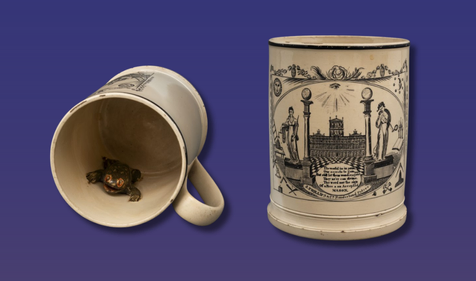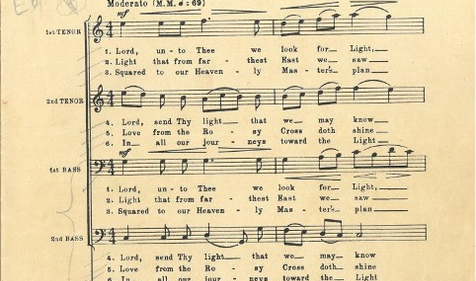The life of Mark Twain carries an amazing legacy and we are proud to call him a fellow Brother. Learn more about his Freemason origins and how the fraternity had an impact on his work.
Early Life
Samuel Langhorne Clemens, better known as the author Mark Twain, was an American writer and humorist. Today he is readily associated with The Adventures of Tom Sawyer, The Prince and the Pauper, and The Adventures of Huckleberry Finn, among his many others works. Twain was born on November 30, 1835 in Florida, Missouri. He became an apprentice to a printer at age 12, and shortly thereafter became a Mississippi River pilot - the experience that sparked Twain’s interest in joining Freemasonry.
Joining Freemasonry
Mark Twain presented his petition to Polar Star Lodge No. 79 of Saint Louis on December 26, 1860. He received the first degree shortly after on February 18, 1861. Polar Star Lodge No. 79 was primarily made up of River Pilots at this time, giving us a hint as to why Mark Twain might have been inspired to join the Craft in the first place.
In a twist of events shortly after Twain had been raised as a Master Mason, he left for the Nevada Territory to work as the private secretary to his brother Orion, who was secretary of the Nevada Territory and was subsequently suspended from his home lodge. Twain’s fraternal activity was put on hold for the most part, and there is not a lot of evidence of Lodge visits or conversations about his Masonic practices during this time. Once Twain returned to “the States” however, his Masonic interests expanded.
In April of 1867, Mark Twain petitioned for readmission to his home Lodge and was reinstated.
The beloved novelist soon became a busy man; writing, tours, and the beginnings of fame kept him away from Saint Louis for long periods of time. On one of his first trips exploring Europe and the Near East, Twain is said to have been greatly impressed by Lebanon and its connection to Freemasonry. He ended up retrieving a piece of cedar and had it made into a gavel to send back to the Worshipful Master of his mother Lodge.
Mark Twain's Masonic Impact
Sadly, this passion for Freemasonry was soon to be impacted by Twain’s engagement to Olivia Langdon and he asked for a demit, remaining unaffiliated for the rest of his life.
Although there is not a great deal of evidence to point to Mark Twain’s Masonic devotion, it is clear that Freemasonry had an impact on his life, which can be seen throughout his various writings. In The Innocents Abroad, he includes many Masonic phrases such as “great Architect of the Universe,” a nod to his Masonic past. There are also many randomized passages among his vast array of work that have uncanny parallels to Masonic ideology. Some even say that the links to Masonry in his writing were added as a wink to fellow Brothers that might be reading his books.
The life of Mark Twain carries an amazing legacy and we are proud to call him a fellow Brother. If you are interested in more about the ever-interesting Samuel Clemens, the two resources listed below are a great place to start.
Research materials provided by the Scottish Rite Museum & Library via the works below:
Taken from: “Mark Twain and Freemasonry”, by Alexander E. Jones. Source: American Literature, Vol. 26, No. 3 (Nov., 1954), pp. 363-373. Published by: Duke University Press.
10,000 Famous Freemasons by William R. Denslow Vole I A-D
Related Stories
Discover additional Scottish Rite blogs and news on this topic.



